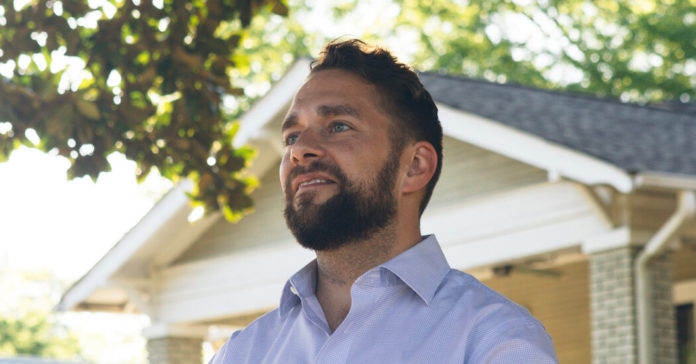
Minutes before Alabama lawmakers were set to vote on a bill criminalizing medical care for young transgender people who are transitioning, State Representative Neil Rafferty took to the floor of the House and pleaded with his colleagues to reconsider.
“It’s hard enough growing up being different,” he said. “It’s even harder growing up being different and then have the state Legislature, your elected officials, the leaders of this state, put a target on children’s backs.”
He ended his speech with a direct appeal: “I’m begging y’all, all right?”
And then he acknowledged that his efforts were largely futile: “What’s going to happen is going to happen. Just don’t you dare call me a friend after this.”
Mr. Rafferty’s loss was swift and resounding. The House approved the legislation by a vote of 66-28. On that same day in early April, the State Senate voted 26-5 for a bill mandating that K-12 students use only bathrooms and locker rooms that correspond with the gender on their original birth certificate, rather than their current gender identity. That legislation also limited classroom discussions on gender and sexual orientation, similar to a Florida measure derided by critics as “Don’t Say Gay.” Gov. Kay Ivey, a Republican, signed both measures the following day.
The legislation, now facing legal challenges, is part of a wave of bills about gay and transgender youth being debated and in some cases approved by conservative lawmakers across the country. Alabama’s version goes further than most, making what doctors describe as gender-affirming care to anyone under 19 a felony punishable by up to 10 years in prison. Last year, state lawmakers also passed a measure prohibiting transgender athletes from playing on sports teams that align with their gender identity.
For Mr. Rafferty, a Democrat and the only openly gay member of the Alabama Legislature, the new laws represented not just a political defeat but a deeply personal one, too — a development he had trouble discussing without tears.
“I just still don’t really know how to feel other than just feel angry and worried about all the kids and their families who have been reaching out to me,” he said. “These kids are scared. Their parents are scared.”
When Mr. Rafferty, 37, told his colleagues about the difficulty of growing up gay in Alabama, it was from painful personal experience.
Born and raised in Birmingham, he first came out as gay in 1998. His early teens were filled with taunting and bullying that he described as a “daily gantlet.” He ran away from home. Before his junior year, looking for a fresh start, he transferred to a different school and did not reveal his sexual identity to classmates or teachers.
Mr. Rafferty attended the University of Alabama at Birmingham and joined the Marine Corps. While in the military, he avoided conversations about personal relationships, although he was already in a relationship with the man who would later become his husband. Only after leaving the Marines, just over a decade ago, did he become more open about his sexuality.
He spent nine years as an employee of Birmingham AIDS Outreach, working with young people and organizing H.I.V. testing events across the region. He ran for the Legislature in 2018, becoming only the second openly gay lawmaker elected in the state. The first, Patricia Todd, held the same Birmingham-area House seat before him. At her retirement, Ms. Todd said that she was most proud of the Alabama legislation that she had helped to block — measures she considered harmful to L.G.B.T.Q. constituents.
Mr. Rafferty, too, has spent his term in the Legislature working to prevent new restrictions on gay and transgender young people. He testified against such proposals. He connected constituents with Republican proponents of the measures, hoping to change the lawmakers’ minds by making them more comfortable with gay and transgender people and explaining the burdens they said such legislation would create. He brought medical experts and local organizers who provide support to L.G.B.T.Q. youth to the Capitol.
When the legislation came to the floor of the House, Mr. Rafferty appealed to his colleagues on the basis of their conservatism, arguing that they had no business involving themselves in the decisions of parents, doctors and children. “Where’s the freedom in that?” he asked. “Where’s small government in that?”
His efforts were welcomed by gay and transgender residents, who saw him as a singularly important ally. “He has earned a degree of trust with trans people, not just with his representation but because he is part of our extended community,” said Sydney Duncan, a lawyer and head of L.G.B.T.Q. legal services at the organization where Mr. Rafferty once worked. “He has taken the time to educate himself on these issues, and that has earned him a pass with us to be able to represent us and talk to us and see that we are treated well.”
Dan Rice, 20, appeared before lawmakers in 2020 to testify against transgender legislation similar to the law that was ultimately approved this month. Mr. Rafferty’s presence, he said, was a source of support. “The fact that there was someone that was queer and a legislator in Alabama at all was extremely comforting to me, especially when I was talking to these people and he would be seated among them,” Mr. Rice said.
But Mr. Rafferty’s opponents were equally determined.
State Representative Wes Allen, one of the creators of the bathroom bill, noted that his legislation had been three years in the making. He described the new transgender restrictions as common-sense protections.
“We make decisions in this body all the time to protect children from making decisions that could permanently harm them before they are old enough and have a brain developed enough to fully understand their decisions,” Mr. Allen, a Republican, said before the bill was passed.
Governor Ivey invoked God as she swiftly signed the measures. “I believe very strongly that if the Good Lord made you a boy, you are a boy, and if he made you a girl, you are a girl,” she said in a statement. “We should especially protect our children from these radical, life-altering drugs and surgeries when they are at such a vulnerable stage in life. Instead, let us all focus on helping them to properly develop into the adults God intended them to be.”
Mr. Rafferty wasn’t the only lawmaker trying to stop the legislation — he had allies among his Black Democratic colleagues, especially. But the defeat nonetheless felt lonely.
“What I said on the floor about it being hard to grow up different here was from my heart because I have experienced that,” he said through tears in an interview. Equally difficult, he said, was “to have state legislators, your leaders sitting there trying to erase you, say that you don’t even really exist.”








